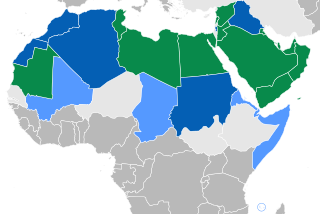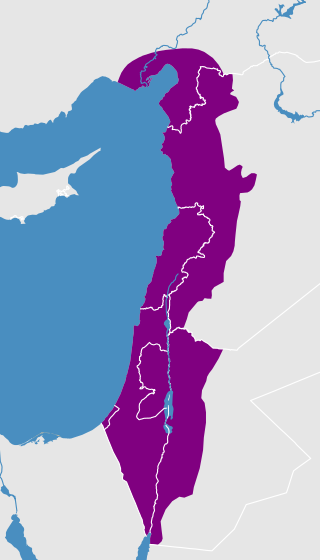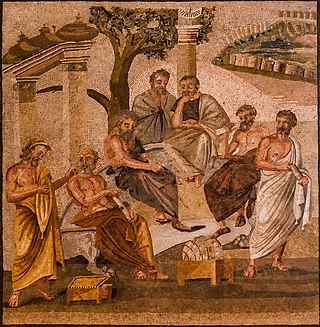Arabic language schools are language schools specialized in teaching Arabic as a foreign language. There are different types of Arabic language schools based on their focused branch, target audience, methods of instruction delivery, cultural atmosphere, and elective courses available.
Unlike general language schools that provide Arabic classes and certificates along with other live languages' classes as well, Arabic language schools are those that specialize in Arabic language instruction only, or mainly. Al Diwan Center is an example whose focus is on Arabic only. Examples of a school that cannot be referred to as an "Arabic language school" is the British Council.
While not very big in number, those specialized schools with this focus made them very effective in teaching this subject matter that are regarded by many as difficult compared to other live languages of today. Provided that most of them are located where Arabic is the native mother tongue, they make it ideal for those who want to practice what they learn in a daily life experience. [1] [2]
Schools that teach Arabic to speakers of other languages are categorized based on the following:
Some schools are large enough to provide graduate-like course curriculum and teaching quality, while others are starting out and provide middle-to-high school level of Arabic teaching. [3]
Many schools provide side courses on related subjects like: Islamic religious courses related to language like Quranic recitation, and Arabic calligraphy.

Arabic is a Central Semitic language of the Afroasiatic language family spoken primarily in the Arab world. The ISO assigns language codes to 32 varieties of Arabic, including its standard form of Literary Arabic, known as Modern Standard Arabic, which is derived from Classical Arabic. This distinction exists primarily among Western linguists; Arabic speakers themselves generally do not distinguish between Modern Standard Arabic and Classical Arabic, but rather refer to both as al-ʿarabiyyatu l-fuṣḥā or simply al-fuṣḥā (اَلْفُصْحَىٰ).

Calligraphy is a visual art related to writing. It is the design and execution of lettering with a pen, ink brush, or other writing instrument. Contemporary calligraphic practice can be defined as "the art of giving form to signs in an expressive, harmonious, and skillful manner".

Iran's ethnic diversity means that the languages of Iran come from a number of linguistic origins, although the primary language spoken and used is Persian. The Constitution of the Islamic Republic of Iran asserts that the Persian language alone must be used for schooling and for all official government communications. The constitution also recognizes Arabic as the language of Islam, and assigns it formal status as the language of religion. Although multilingualism is not encouraged, the use of minority languages is permitted in the course of teaching minority-language literature. Different publications have reported different statistics for the languages of Iran; however, the top three languages spoken are consistently reported as Persian, Azeri and Kurdish.

Madrasa, sometimes transliterated as madrasah or madrassa, is the Arabic word for any type of educational institution, secular or religious, whether for elementary education or higher learning. In countries outside the Arab world, the word usually refers to a specific type of religious school or college for the study of the religion of Islam, though this may not be the only subject studied.

English as a second or foreign language refers to the use of English by individuals whose native language is different, commonly among students learning to speak and write English. Variably known as English as a foreign language (EFL), English as a second language (ESL), English for speakers of other languages (ESOL), English as an additional language (EAL), or English as a new language (ENL), these terms denote the study of English in environments where it is not the dominant language. Programs such as ESL are designed as academic courses to instruct non-native speakers in English proficiency, encompassing both learning in English-speaking nations and abroad.

Levantine Arabic, also called Shami, is an Arabic variety spoken in the Levant, namely in Syria, Jordan, Lebanon, Palestine, Israel and southern Turkey. With over 54 million speakers, Levantine is, alongside Egyptian, one of the two prestige varieties of spoken Arabic comprehensible all over the Arab world.

The history of education, like other history, extends at least as far back as the first written records recovered from ancient civilizations. Historical studies have included virtually every nation. The earliest known formal school was developed in Egypt's Middle Kingdom under the direction of Kheti, treasurer to Mentuhotep II. In ancient India, education was mainly imparted through the Vedic and Buddhist education system, while the first education system in ancient China was created in Xia dynasty. In the city-states of ancient Greece, most education was private, except in Sparta. For example, in Athens, during the 5th and 4th century BC, aside from two years military training, the state played little part in schooling. The first schools in Ancient Rome arose by the middle of the 4th century BC.
Education in the Philippines is compulsory at the basic education level, composed of kindergarten, elementary school, junior high school, and senior high school. The educational system is managed by three government agencies by level of education: the Department of Education (DepEd) for basic education; the Commission on Higher Education (CHED) for higher education; and the Technical Education and Skills Development Authority (TESDA) for technical and vocational education. Public education is funded by the national government.
Aldiwan Arabic Language Center, briefly Aldiwan Center, is an Arabic language school based in Cairo, Egypt and established in 1997. It focuses on providing Modern Standard Arabic (MSA) certificates and Egyptian Colloquial Arabic (ECA) courses.

Education in Somalia refers to the academic system within Somalia. The Ministry of Education is officially responsible for education in Somalia, with about 15% of the nation's budget allocated to scholastic instruction. The breakaway republic of Somaliland maintains its own advanced Ministry of Education.

Madrasah Irsyad Zuhri Al-Islamiah is a full-time co-educational madrasah offering primary education in Singapore. Madrasah is an Arabic word that means "school" but in the present context a madrasah means an Islamic religious school. "Irsyad" means rightly guided in Arabic.
Heritage language learning, or heritage language acquisition, is the act of learning a heritage language from an ethnolinguistic group that traditionally speaks the language, or from those whose family historically spoke the language. According to a commonly accepted definition by Valdés, heritage languages are generally minority languages in society and are typically learned at home during childhood. When a heritage language learner grows up in an environment with a dominant language that is different from their heritage language, the learner appears to be more competent in the dominant language and often feels more comfortable speaking in that language. "Heritage language" may also be referred to as "community language", "home language", and "ancestral language".
The Pakistani textbooks controversy refers to claimed inaccuracies and historical denialism. The inaccuracies and myths promote religious intolerance and Indophobia and lead to calls for curriculum reform. According to the Sustainable Development Policy Institute, Pakistan's school textbooks have systematically inculcated anti-Indian discrimination through historical omissions and deliberate misinformation since the 1970s.
Sekolah Menengah Kebangsaan Agama (SMKA) or National Islamic Secondary School (Arabic: المدرسة الثانوية الوطنية الدينية) is a type of institutional group of education established and managed by the Malaysian Ministry of Education (MOE). SMKA forms Religious Education Institution (IPA) with two other types of institutional group of education, which are Government-funded Religious School (SABK) and normal secondary schools with Religious Stream Class (KAA)

The official languages of the Comoros are Comorian, French and Arabic, as recognized under its 2001 constitution. Although each language holds equal recognition under the constitution, language use varies across Comorian society. Unofficial minority languages such as Malagasy and Swahili are also present on the island with limited usage. According to Harriet Joseph Ottenheimer, a professor of anthropology at Kansas State university, the linguistic diversity of the Comoros is the result of its rich history as part of the Indian maritime trade routes and its periods of Malagasy and French colonial rule.

The West Bengal Board of Madrasah Education is the state government administered autonomous examining authority for affiliated and recognized madrasahs in West Bengal, India. Perhaps among the oldest post-secondary boards in India, it is the only madrasah board that is recognized by the Government of India. It is one of the parastatal organization of the Minority Affairs and Madrasah Education Department. The West Bengal Board of Madrasah Education is the West Bengal state government administered autonomous examining authority for the High Madrasah examination of West Bengal, India. It has come into force by the West Bengal Board of Madrasah Education Act-1994.
Education has played a central role in Islam since the beginnings of the religion, owing in part to the centrality of scripture and its study in the Islamic tradition. Before the modern era, education would begin at a young age with study of Arabic and the Quran. For the first few centuries of Islam, educational settings were entirely informal, but beginning in the 11th and 12th centuries, the ruling elites began to establish institutions of higher religious learning known as madrasas in an effort to secure support and cooperation of the ulema. Madrasas soon multiplied throughout the Islamic world, which helped to spread Islamic learning beyond urban centers and to unite diverse Islamic communities in a shared cultural project. Madrasas were devoted principally to study of Islamic law, but they also offered other subjects such as theology, medicine, and mathematics. Muslims historically distinguished disciplines inherited from pre-Islamic civilizations, such as philosophy and medicine, which they called "sciences of the ancients" or "rational sciences", from Islamic religious sciences. Sciences of the former type flourished for several centuries, and their transmission formed part of the educational framework in classical and medieval Islam. In some cases, they were supported by institutions such as the House of Wisdom in Baghdad, but more often they were transmitted informally from teacher to student.
{{cite web}}: CS1 maint: archived copy as title (link)